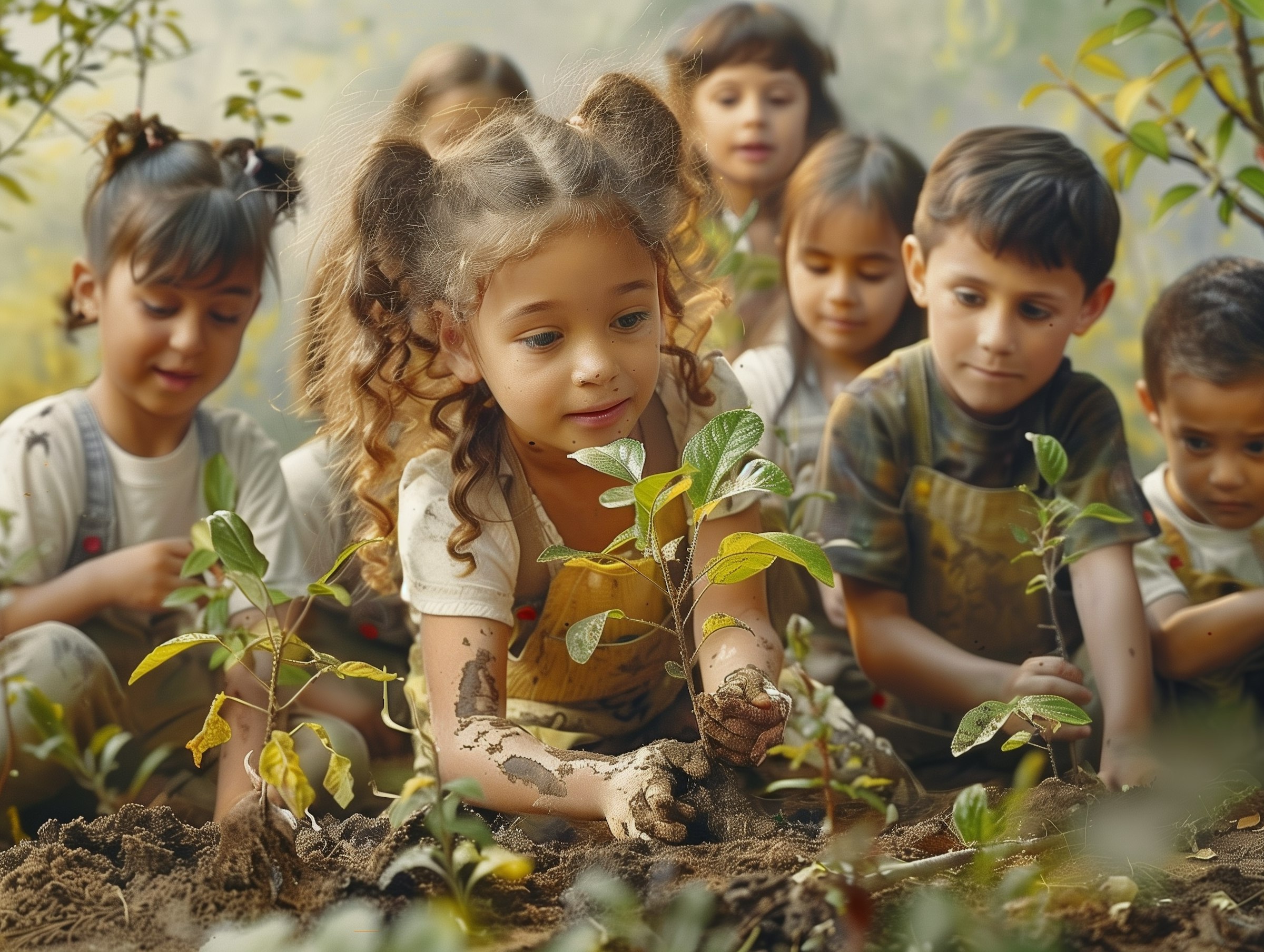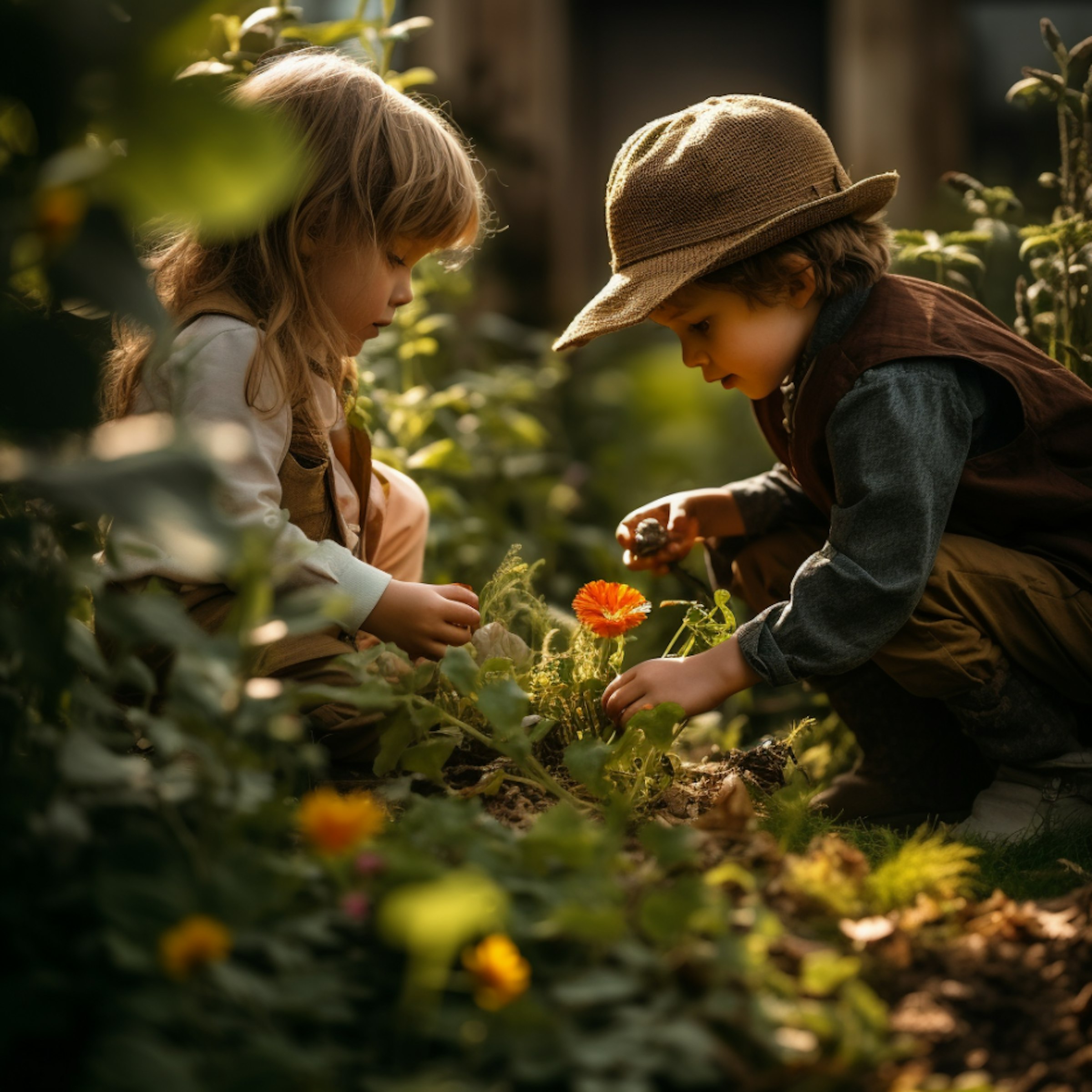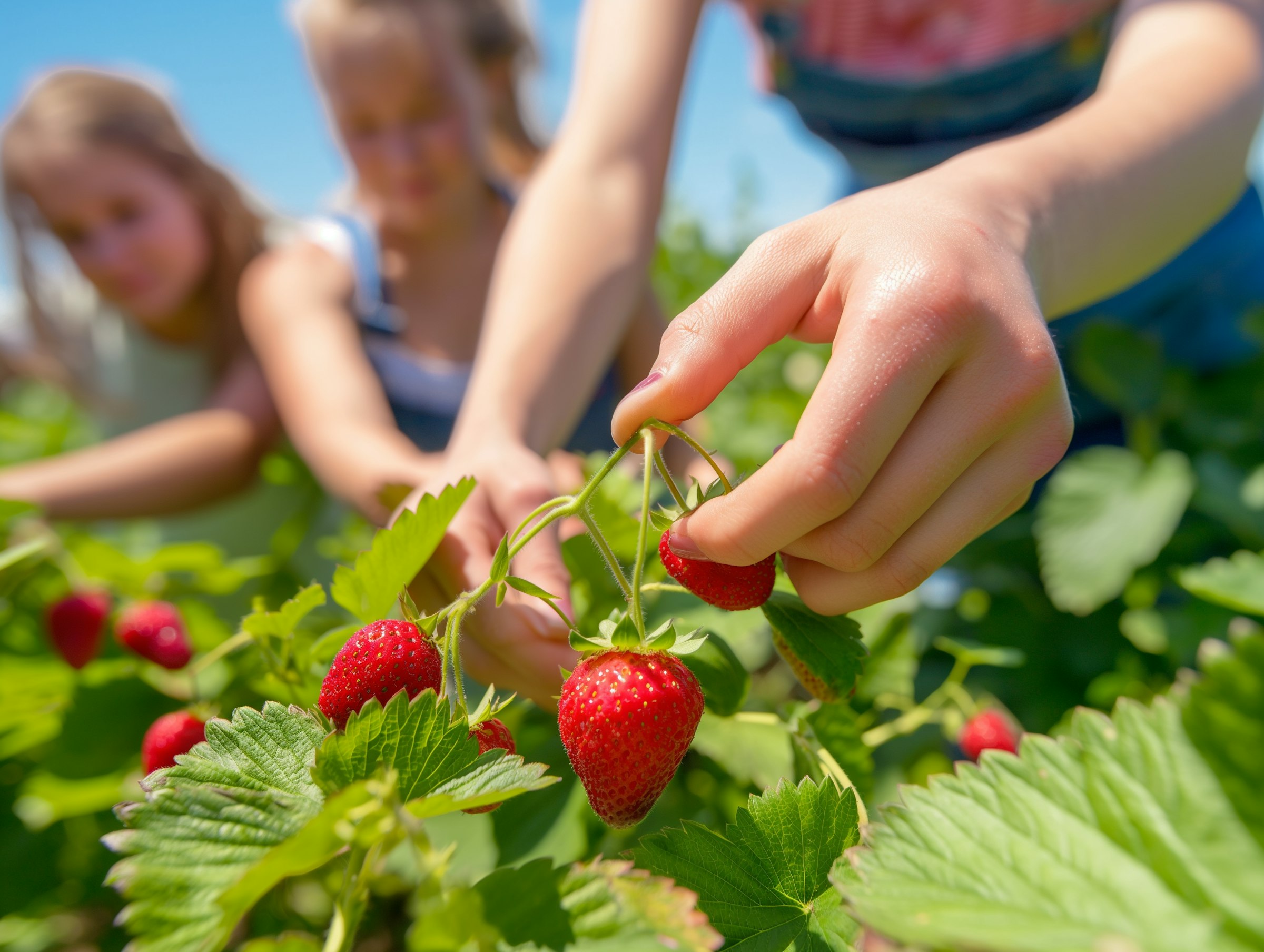Gardening is more than just planting seeds and watching them grow; it’s a great way to bond with children, teach them valuable life skills, and create lasting memories. Involving kids in gardening offers numerous benefits for their physical, emotional, and intellectual development. Plus, it’s a fun and rewarding activity that can lead to healthier eating habits and a love for the environment.
In this blog, we’ll explore the key benefits of gardening with kids and provide simple steps to start your own family garden, no matter how small your space is.

The Benefits of Gardening with Kids
- Educational Growth Gardening is a hands-on way to introduce kids to science and nature. It teaches them about the plant life cycle, how food grows, and the importance of environmental stewardship. Gardening encourages curiosity as kids explore insects, soil, and weather patterns that impact plant growth. It’s a living classroom where they can see their efforts lead to visible results.
- Physical Activity In a world where kids often spend too much time indoors, gardening gets them outside, moving, and engaged. Digging, planting, weeding, and watering all require physical activity, helping kids stay active and healthy. Gardening is also a form of gentle exercise that can improve fine motor skills, hand-eye coordination, and overall strength.
- Responsibility & Patience Taking care of plants teaches kids the value of responsibility. They learn that plants need consistent care—watering, sunlight, and attention—to thrive. This responsibility fosters patience as kids wait for their plants to grow and produce fruits or flowers, teaching them the reward of long-term commitment.
- Mindfulness & Stress Relief Gardening promotes mindfulness and a sense of calm. It encourages kids (and adults) to slow down, focus on the task at hand, and appreciate nature. For children, it can be a soothing activity that helps reduce stress, boost mood, and provide a sense of accomplishment.
- Healthy Eating Habits Children are more likely to eat vegetables and fruits when they’ve grown them themselves. Gardening helps establish a connection between the food on their plate and its origins in the ground. This can encourage healthy eating habits as kids develop a greater appreciation for fresh, homegrown produce.
How to Start a Simple Garden with Kids

Starting a garden doesn’t have to be complicated or overwhelming. Whether you have a big backyard or a small patio, you can create a simple, kid-friendly garden with just a few basic supplies.
Pick the Right Spot
Choose a location with good sunlight, as most plants need at least 6 hours of sunlight per day. If you don’t have access to a yard, you can use containers or pots on a balcony, patio, or even a windowsill. Make sure the spot is easy for kids to access so they can be involved in daily care.
Choose Kid-Friendly Plants
Start with plants that are easy to grow and fast to germinate to keep kids engaged. Some great options include:
- Sunflowers: These grow tall and fast, providing a fun visual reward.
- Cherry Tomatoes: They’re small, easy to pick, and tasty.
- Radishes: They grow quickly and can be harvested in just a few weeks.
- Herbs: Basil, mint, and parsley are simple to grow and can be used in cooking.
Let kids choose which plants they want to grow. This gives them ownership of the garden and keeps them excited about the process.

Get the Right Tools
Equip your kids with child-sized gardening tools such as small spades, watering cans, gloves, and trowels. Having their own tools makes the experience more enjoyable and helps them feel involved.
Prepare the Soil and Plant the Seeds
Show kids how to prepare the soil by loosening it and removing any weeds. Help them plant the seeds or seedlings according to the instructions on the seed packet, explaining how deep to plant and how far apart they should be spaced. Encourage them to pat down the soil gently and water the plants.
Create a Routine
Make garden care a daily activity. Let your kids take turns watering the plants and checking for weeds or pests. This routine keeps them involved and helps the garden thrive. Encourage them to observe the changes in the garden, like new sprouts, flowers, or fruits.
Watch and Learn Together
As the garden grows, use the opportunity to teach your kids more about nature, insects, and the environment. Celebrate milestones such as the first flower, sprout, or harvest. You can even take photos to document the progress and reflect on the journey.

Instilling an understanding of nutrition at an early age can empower children to make healthier food choices independently. By involving them in meal planning, grocery shopping, and cooking, they are more likely to develop a positive relationship with food.
Professional Tip: Create opportunities for your child to explore different foods by hosting weekly “new food” nights where they can try unfamiliar fruits, vegetables, or dishes. This builds curiosity and excitement around healthy eating.
Conclusion
Gardening with kids is a fun, educational, and rewarding activity that can help them develop a deeper connection with nature while learning important life skills. By starting a simple garden, you’re not only growing plants but also fostering growth in your child’s mind, body, and spirit. Whether you have a large backyard or just a small space, gardening is a great way to bring your family together and enjoy the beauty of nature.
So grab some seeds, get your hands dirty, and start growing together!
Lead your way to us ezroots.in
